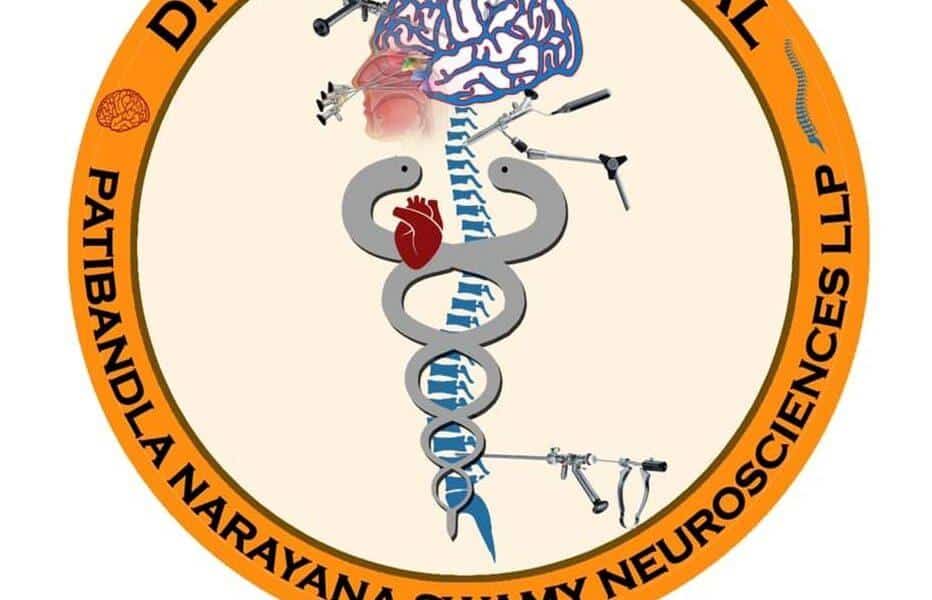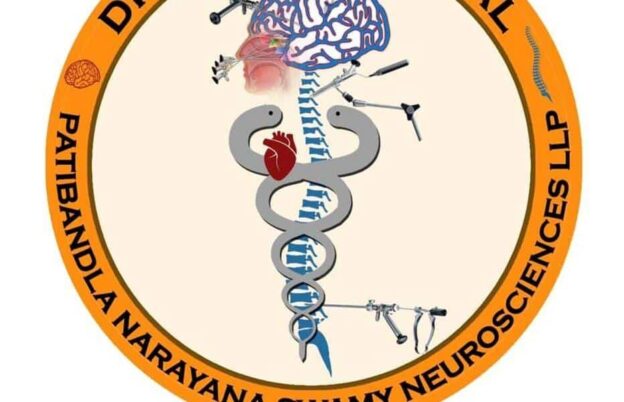The best treatment for Common Neurological Disorders at Dr Raos
The human brain is the control center of the body, responsible for our thoughts, movements, and sensations. It is a complex organ that is made up of billions of neurons, or nerve cells, that communicate with each other to perform various functions. However, sometimes things can go wrong, and the brain can be affected by neurological disorders that can have a significant impact on a person’s life. In this article, we will discuss some common neurological disorders, including their causes, symptoms, and treatment options.
- Alzheimer’s Disease:
Alzheimer’s disease is a progressive brain disorder that affects memory, thinking, and behavior. It is the most common cause of dementia in older adults. Alzheimer’s disease occurs due to the accumulation of abnormal proteins in the brain, which leads to the death of brain cells and the breakdown of the connections between them. As the disease progresses, individuals with Alzheimer’s disease may experience symptoms such as confusion, difficulty speaking and writing, and changes in personality and mood.
Treatment options for Alzheimer’s disease include medication, such as cholinesterase inhibitors and memantine, which can help improve memory and cognitive function. Additionally, lifestyle changes, such as regular exercise, a healthy diet, and social activities, can help slow down the progression of the disease and improve quality of life.
- Parkinson’s Disease:
Parkinson’s disease is a progressive disorder that affects movement. It is caused by the degeneration of dopamine-producing cells in the brain. Dopamine is a neurotransmitter that is responsible for controlling movement, and the loss of dopamine-producing cells leads to the characteristic symptoms of Parkinson’s disease, such as tremors, rigidity, and slowness of movement.
Treatment options for Parkinson’s disease include medication, such as levodopa, which can help increase dopamine levels in the brain. Additionally, physical therapy and exercise can help improve mobility and balance, while speech therapy can help individuals with Parkinson’s disease improve their communication skills.
- Stroke:
A stroke occurs when blood flow to the brain is interrupted, either due to a blood clot or a hemorrhage. As a result, brain cells can become damaged or die, leading to a range of symptoms, such as weakness or numbness on one side of the body, difficulty speaking or understanding language, and vision problems.
Treatment options for stroke depend on the type of stroke and the severity of the symptoms. In some cases, medication, such as clot-busting drugs, can be used to dissolve blood clots and restore blood flow to the brain. In more severe cases, surgery may be necessary to remove a blood clot or repair a damaged blood vessel.
- Seizures:
Seizures are sudden and uncontrolled bursts of electrical activity in the brain that can cause a wide range of symptoms, including convulsions, loss of consciousness, and confusion. Seizures can be caused by a variety of factors, such as epilepsy, brain injury, or infection.
Treatment options for seizures include medication, such as anti-seizure drugs, which can help reduce the frequency and severity of seizures. Additionally, lifestyle changes, such as getting enough sleep and avoiding triggers, can help prevent seizures from occurring.
- Multiple Sclerosis:
Multiple sclerosis (MS) is a chronic autoimmune disorder that affects the central nervous system. It occurs when the immune system attacks the myelin sheath, which is the protective covering around nerve fibers in the brain and spinal cord. As a result, communication between the brain and the rest of the body can be disrupted, leading to a range of symptoms, such as fatigue, numbness or tingling in the limbs, and difficulty with balance and coordination.
Treatment options for MS include medication, such as disease-modifying therapies, which can help slow down the progression of the disease and reduce the frequency and severity of symptoms.
- Epilepsy:
Epilepsy is a neurological disorder that is characterized by recurrent seizures. It is caused by abnormal electrical activity in the brain, which can lead to a range of symptoms, including convulsions, loss of consciousness, and altered mental states.
Treatment options for epilepsy include medication, such as anti-seizure drugs, which can help prevent seizures from occurring. In some cases, surgery may be necessary to remove a portion of the brain that is causing the seizures.
- Huntington’s Disease:
Huntington’s disease is a rare, inherited neurological disorder that affects movement, cognition, and behavior. It is caused by a genetic mutation that leads to the accumulation of abnormal proteins in the brain, which leads to the death of brain cells.
Treatment options for Huntington’s disease include medication, such as dopamine blockers and antidepressants, which can help improve mood and cognitive function. Additionally, physical therapy and speech therapy can help individuals with Huntington’s disease improve their motor skills and communication abilities.
- Migraine:
Migraine is a neurological disorder that is characterized by recurrent headaches that are typically accompanied by other symptoms, such as nausea, vomiting, and sensitivity to light and sound. The exact cause of migraines is not fully understood, but it is thought to be related to changes in blood flow and chemical activity in the brain.
Treatment options for migraines include medication, such as pain relievers and triptans, which can help alleviate the symptoms of a migraine. Additionally, lifestyle changes, such as getting enough sleep, reducing stress, and avoiding trigger foods, can help prevent migraines from occurring.
- ALS:
ALS (Amyotrophic lateral sclerosis), also known as Lou Gehrig’s disease, is a progressive neurological disorder that affects nerve cells in the brain and spinal cord. It leads to the degeneration of motor neurons, which are responsible for controlling voluntary muscles. As a result, individuals with ALS may experience symptoms such as weakness, muscle atrophy, and difficulty speaking and swallowing.
Treatment options for ALS include medication, such as riluzole, which can help slow down the progression of the disease. Additionally, physical therapy and assistive devices, such as wheelchairs and communication aids, can help individuals with ALS maintain their independence and quality of life.
- Traumatic Brain Injury:
Traumatic brain injury (TBI) occurs when the brain is damaged as a result of a blow or jolt to the head. It can lead to a range of symptoms, such as headaches, dizziness, and difficulty with memory and concentration.
Treatment options for TBI depend on the severity of the injury. In mild cases, rest and pain medication may be sufficient. In more severe cases, surgery may be necessary to repair damage to the brain.
- Myasthenia Gravis:
Myasthenia gravis is a rare neurological disorder that affects the neuromuscular junction. It leads to muscle weakness and fatigue, particularly in the face, neck, and limbs. Myasthenia gravis is caused by a malfunction of the immune system that attacks the receptors that allow nerve impulses to reach the muscles.
Treatment options for myasthenia gravis include medication, such as cholinesterase inhibitors and immunosuppressants, which can help improve muscle strength and reduce the severity of symptoms. Additionally, thymectomy, which is the removal of the thymus gland, can help improve symptoms in some cases.
- Charcot-Marie-Tooth Disease:
Charcot-Marie-Tooth disease is a group of inherited neurological disorders that affect the peripheral nerves, which are responsible for transmitting signals between the brain and the muscles. Charcot-Marie-Tooth disease leads to muscle weakness and atrophy, particularly in the feet and hands.
Treatment options for Charcot-Marie-Tooth disease include physical therapy and assistive devices, such as braces and orthotics, which can help improve mobility and reduce the risk of falls. Additionally, surgery may be necessary to correct deformities caused by muscle weakness.
- Guillain-Barre Syndrome:
Guillain-Barre syndrome is a rare neurological disorder that is characterized by weakness and tingling in the limbs, which can rapidly progress to paralysis. Guillain-Barre syndrome is caused by an immune response that damages the peripheral nerves.
Treatment options for Guillain-Barre syndrome include plasmapheresis, which is a procedure that removes harmful antibodies from the blood, and immunoglobulin therapy, which involves the administration of immune system proteins to help reduce inflammation. Additionally, physical therapy and rehabilitation can help individuals with Guillain-Barre syndrome recover their strength and mobility.
- Restless Leg Syndrome:
Restless leg syndrome is a neurological disorder that is characterized by an irresistible urge to move the legs, particularly at night. Restless leg syndrome is thought to be caused by an imbalance of dopamine in the brain.
Treatment options for restless leg syndrome include medication, such as dopamine agonists and anticonvulsants, which can help reduce symptoms. Additionally, lifestyle changes, such as getting regular exercise and avoiding caffeine and alcohol, can help alleviate symptoms.
- Spinal Muscular Atrophy:
Spinal muscular atrophy is a rare genetic neurological disorder that affects the nerves that control muscle movement. Spinal muscular atrophy leads to muscle weakness and atrophy, particularly in the limbs.
Treatment options for spinal muscular atrophy include medication, such as nusinersen and onasemnogene abeparvovec-xioi, which can help slow down the progression of the disease. Additionally, physical therapy and assistive devices, such as braces and wheelchairs, can help individuals with spinal muscular atrophy maintain their mobility and independence.
- Narcolepsy:
Narcolepsy is a neurological disorder that is characterized by excessive daytime sleepiness and sudden sleep attacks. Narcolepsy is caused by a dysfunction of the neurotransmitter hypocretin, which regulates sleep and wakefulness.
Treatment options for narcolepsy include medication, such as stimulants and antidepressants, which can help reduce sleepiness and improve mood. Additionally, lifestyle changes, such as taking regular naps and avoiding alcohol and caffeine, can help alleviate symptoms.
Conclusion
In conclusion, neurological disorders can have a significant impact on a person’s life, but there are a range of treatment options available that can help alleviate symptoms and improve quality of life. If you are experiencing any symptoms of a neurological disorder, it is important to seek medical attention as soon as possible to receive a proper diagnosis and treatment plan.
Dr Raos hospital the best in INDIA
Dr. Rao’s Neuro, Brain, and Spine Hospital is a leading healthcare institution located in Guntur, Andhra Pradesh, India. The hospital is dedicated to providing comprehensive and advanced treatment options for neurological disorders, brain-related ailments, and spine-related problems.
Led by Dr. Rao, a renowned neurosurgeon and spine surgeon, the hospital boasts a team of highly qualified and experienced medical professionals who specialize in various areas of neurology and spine surgery. The hospital is equipped with state-of-the-art facilities, including advanced diagnostic and surgical equipment, to ensure that patients receive the highest quality care.
The hospital offers a wide range of services, including neurosurgery, spine surgery, pediatric neurology, neurology, stroke care, and pain management. The hospital’s specialized clinics, such as the Headache Clinic and the Movement Disorder Clinic, provide personalized and effective treatment options for patients with specific neurological conditions.
Dr. Rao’s Neuro, Brain, and Spine Hospital is committed to delivering compassionate and patient-centered care, and the hospital’s team of medical professionals work tirelessly to ensure that each patient receives individualized attention and the best possible treatment outcomes.
Overall, Dr. Rao’s Neuro, Brain, and Spine Hospital is a trusted and reliable healthcare institution for patients seeking advanced and effective treatment options for neurological and spine-related conditions.


